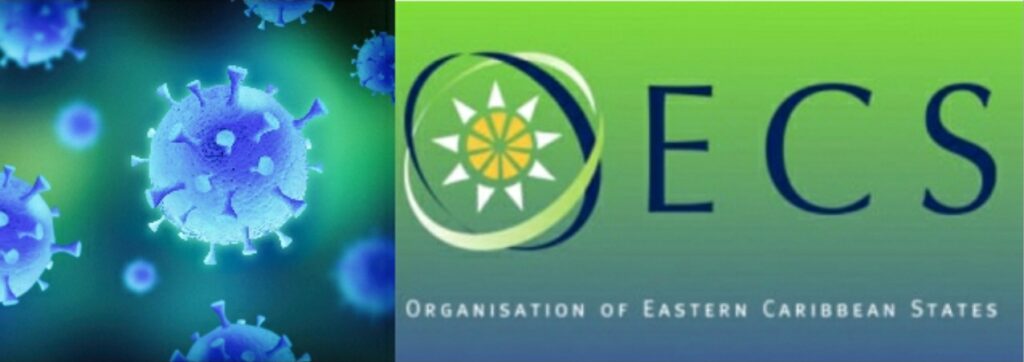
Nearly eight thousand (8000) confirmed new Covid-19 cases have been reported over the last three weeks of September 2021 with a 52% increase from 4231 cases in the month of August 2021 from Barbados and 6 Eastern Caribbean countries (Antigua and Barbuda, Dominica, Grenada, Saint Lucia, Saint Kitts and Saint Vincent and the Grenadines). The increase of cases is largely noted in persons who are unvaccinated (83-95%) for Covid-19. The new reported cases also showed a proportion of the cases, 15-25%, to be children under the age of 18 years old driven by highly transmissible Delta Variant of Concern.
In the last 7 days, the increase in number of cases is led by Saint Vincent and the Grenadines (231.8%, representing 282 new cases), and Saint Lucia (36.2%, 872) and Antigua and Barbuda (74.2%). The hospitalization rate increased significantly in the range of 37% in Barbados to 1700% in Grenada in the same period. A 13% case decrease was reported from the Commonwealth of Dominica.
Saint Lucia’s health systems has been recently struggling with oxygen supply as hospitalizations increased by 214% in the last 7 days. The main hospital of the country reports as main challenges: lack of specialist staff, technological and communication issues, increased patient flow as well as oxygen demand, and staff burnout and stress. Similar shortage of clinical supplies including unstable and insufficient oxygen supplies impeded health service delivery in Grenada, Dominica, and Saint Vincent and the Grenadines.
Test positivity rate range as high as 10% in Barbados to 24% in Saint Lucia, as of September 22nd, 2021. This high level of positivity rate suggests that the real number of infected people is higher than what we are seeing.
The COVID-19 new deaths and 7-day moving average continued to increase in new death resulting in 78% increase in Saint Lucia and an average 5 deaths per day as of 16 September. Grenada is also reporting an increase of 25.9% regarding number of deaths (26 new deaths) and 300% increase in Saint Vincent and the Grenadines.
Dr. Yitades Gebre, PAHO Representative for Barbados and Eastern Caribbean said “we are observing a situation of community transmission with limited additional capacity to respond and a risk of health services becoming overwhelmed. A larger combination of measures may need to be put in place to limit transmission, manage cases, and ensure epidemic control.” The current epidemiological situation may continue unless stringent measures are in place.
The presence of variant of concern (VOC) is to be considered with the high transmission. One of the reasons for why variants might emerge are the ‘selection pressures’ brought about by widespread transmission of the virus. The importance of limiting transmission to reduce the risk of the emergence of variants of concerns cannot be overstated. Variants of concern are known to spread more easily, cause more severe disease, escape the body’s immune response, change clinical presentation, or decrease effectiveness of known tools – public health measures, diagnostics, treatments, and vaccines.
Key drivers of transmission in the area under assessment must be well understood using local surveillance data, and measures should be rapidly re-implemented should incidence increase. A particular focus should be on prevention and early detection of potential superspreading events. Individuals are encouraged to accept covid-19 vaccination when offered and practice preventive measures such as wearing mask in public places, frequent hand hygiene, keeping physical distancing and to avoid crowded spaces.
The Pan American Health Organization continues to provide test kits, and other laboratory supplies, Oxygen Concentrators, and Information Technology equipment. Emergency Medical Teams have been also deployed from Mexico and Spain to Grenada and Dominica respectively.